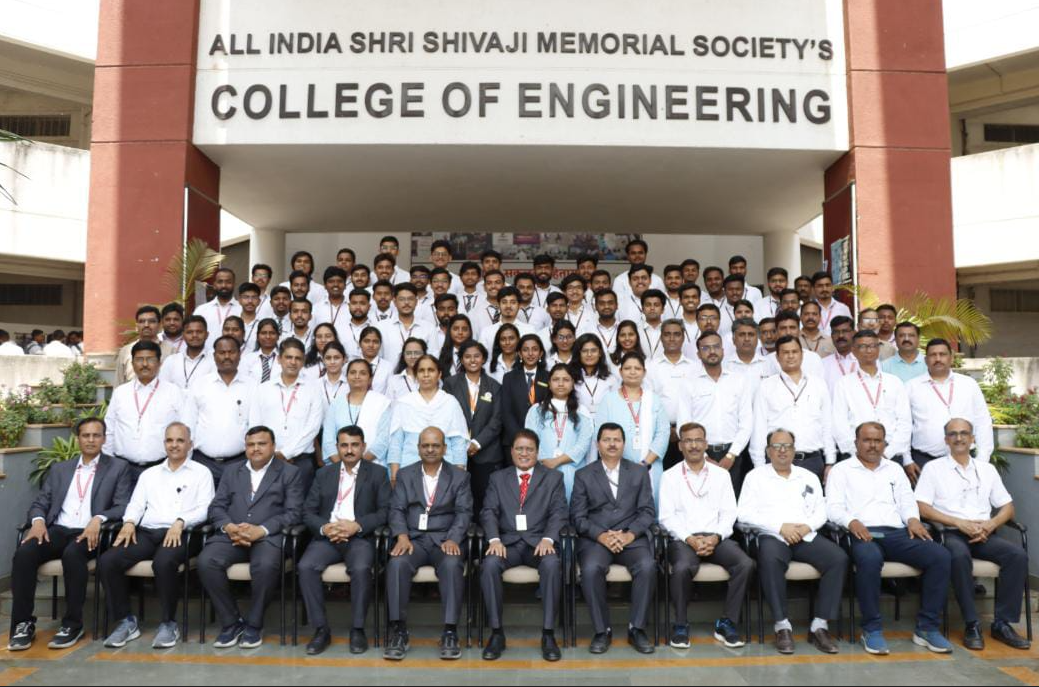Department of Mechanical engineering Faculty 2025:
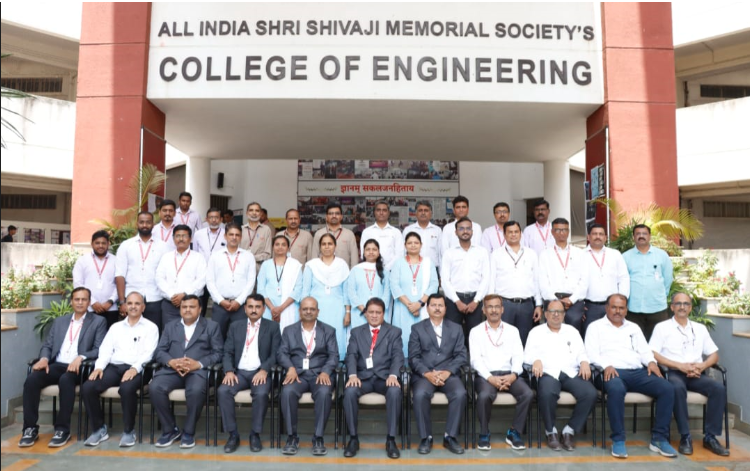
Bachelor of Mechanical engineering class A students 2024:
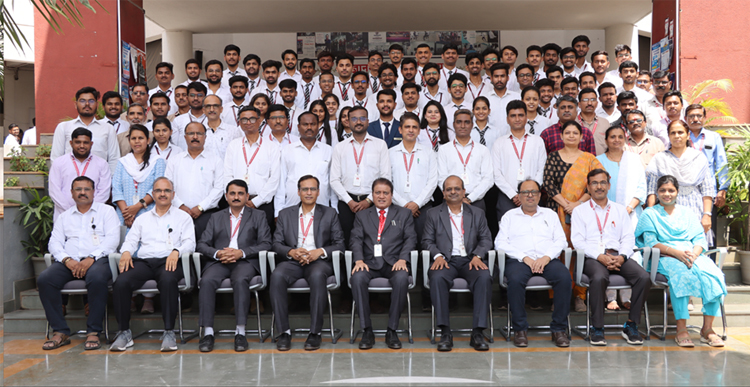
Bachelor of Mechanical engineering class B students 2024
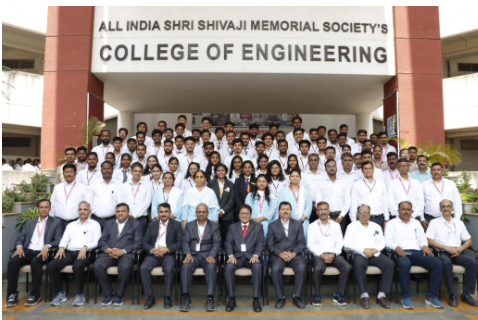
Bachelor of Mechanical sandwich engineering students 2024


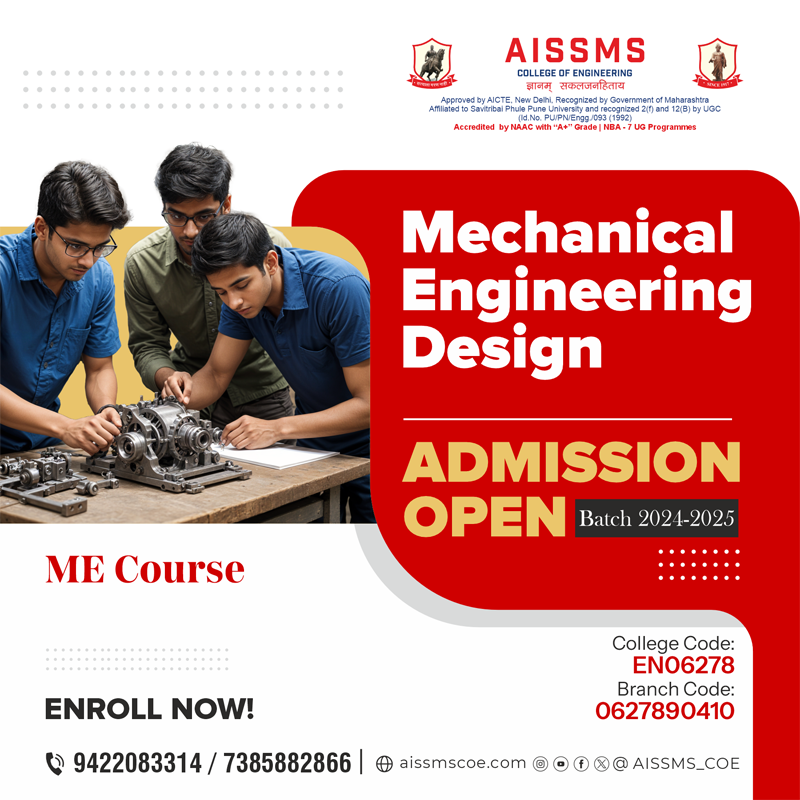
Department of Mechanical Engineering was established in 1992. The department runs two undergraduate programs viz. Mechanical Engineering, Mechanical Engineering (Sandwich) and two PG programs with Automotive and Design Engineering as specialization. Department also run research Centre leading to PhD Program.
Department is having 32 Teaching Faculty members, 03 Technical staff and 06 supporting staff. Total 15 faculty members having PhD qualification. Total student strength of 750. The department is headed by Dr S V Chaitanya.
The department has well equipped laboratories with high-end software’s used in industry. Our students bring laurels by succeeding in various international/national technical competitions. We have a strong culture of encouraging students to understand real life challenges through activities like BAJA, SUPRA, GO KART, EFFICYCLE, AERO-DESIGN. The department has active students chapters of professional bodies like SAE, IE(I), IMechE, ISHRAE and FPSI .
Vision:
- To be recognized as a premier centre in the field of Mechanical Engineering Education
Mission:
- To strive continuously for an advancement of academics and lifelong learning through effective teaching learning process.
- To strengthen industry-institute interface, association with professional societies to develop leadership, team work and industry oriented attributes through internship.
- To develop skill based mechanical engineering professionals for sustainable development through project based learning and active research
Short Term Goals:
- To enhance interaction with industry.
- To strengthen association with professional bodies.
- To establish a research center.
- To increase no of short term courses.
- To modernize laboratories.
Long Term Goals:
- To establish a center of excellence.
- To improve the qualification of faculties.
- To help students for their academic excellence to reach global standards.
- To maximize entrepreneurship development activities.
- To obtain accreditation from reputed bodies.
Program Educational Objectives (PEO’s) of Mechanical Engineering
Graduates from the mechanical engineering program are expected to achieve the following program educational objectives after 3 to 5 Years of graduation.
- Engage in designing, planning, manufacturing, testing, and developing products and processes in the field of mechanical and allied engineering industries.
- Work effectively as an individual and as team member in an organization.
- Meet global expectations of higher studies, research and changing professional needs.
- Engage in lifelong learning, career enhancement and respond to the demands of society for sustainable development.
Program Educational Objectives (PEO’s) of Mechanical Engineering (Sandwich Pattern)
Graduates from the mechanical engineering (Sandwich Pattern) program are expected to achieve the following program educational objectives after 3 to 5 Years of graduation.
- Engage in designing, planning, manufacturing, testing, and developing products and processes in the field of mechanical and allied engineering industries.
- Work effectively as an individual and as team member in an organization.
- Meet global expectations of higher studies, research and changing professional
- Engage in lifelong learning, career enhancement and respond to the demands of Industry and society for sustainable development.
Course Outcomes
Program Outcomes:
- Engineering Knowledge: Apply knowledge of mathematics, science, engineering fundamentals and an engineering specialization to the solution of complex engineering problems.
- Problem Analysis: Identify, formulate, research literature and analyze complex engineering problems reaching substantiated conclusions using first principles of mathematics, natural sciences and engineering sciences.
- Design/Development of Solutions: Design solutions for complex engineering problems and design system components or processes that meet specified needs with appropriate consideration for public health and safety, cultural, societal and environmental considerations.
- Conduct: Investigations of complex problems using research-based knowledge and research methods including design of experiments, analysis and interpretation of data and synthesis of information to provide valid conclusions.
- Modern Tool Usage: Create, select and apply appropriate techniques, resources and modern engineering and IT tools including prediction and modeling to complex engineering activities with an understanding of the limitations.
- The Engineer and Society: Apply reasoning informed by contextual knowledge to assess societal, health, safety, legal and cultural issues and the consequent responsibilities relevant to professional engineering practice.
- Environment and Sustainability: Understand the impact of professional engineering solutions in societal and environmental contexts and demonstrate knowledge of and need for sustainable development.
- Ethics: Apply ethical principles and commit to professional ethics and responsibilities and norms of engineering practice.
- Individualand Team Work: Function effectively as an individual, and as a member or leader in diverse teams and in multi-disciplinary settings.
- Communication: Communicate effectively on complex engineering activities with the engineering community and with society at large, such as being able to comprehend and write effective reports and design documentation, make effective presentations and give and receive clear instructions.
- Project Management and Finance: Demonstrate knowledge and understanding of engineering and management principles and apply these to ones‟ own work, as a member and leader in a team, to manage projects and in multidisciplinary environments.
- Life-long Learning: Recognize the need for and have the preparation and ability to Engage in independent and life- long learning in the broadest context of Technological Change.
Program Specific Outcomes (PSOs):
Mechanical Engineering:
- Our graduate will have competencies in design and develop mechanical elements and systems.
- Our graduate will have incremental skills to specify and select materials, processes to manufacture an industrial product.
- Our graduate will have ability to analyze and evaluate performance of thermal system.
Program Specific Outcomes (PSOs) of Mechanical Engineering (Sandwich Pattern)
At the end of Mechanical Engineering (Sandwich Pattern) Programme
- Our graduate will have competencies in design and development mechanical elements and systems.
- Our graduate will have incremental skills to specify and select materials, processes to manufacture and inspect quality of industrial product.
- Our graduate will have industry oriented attributes through industrial In plant Training.
Department of Mechanical Engineering offers following programs:
| Name of the Course | Started in | Intake |
|---|---|---|
| BE Mechanical Engineering | 1992 | 60 |
| BE Mechanical Engineering (Sandwich) | 1994 | 60 |
| BE Mechanical Engineering | 2012 | 60 |
| ME (Mechanical – Design Engineering) | 2013 | 18 |
| PhD (Mechanical Engineering) | 2020 | 25 |
The Mechanical Engineering (Sandwich pattern) includes two semesters of industrial in-plant training. This training is conducted in reputed industries like TATA Motors, Thermax, SKF, JCB, John Deere, Volkswagen, Mercedes-Benz, GM, Cotton Greveas, Sandvik Asia, Forbes Marshall, Alfa Laval, Bosch etc. The PG Course, ME (Automotive Engineering and Design), offers unique opportunity to learn new challenges in Automobile field including R & D and latest manufacturing technology. The Department presently has highly qualified and experienced staff on its roll. Besides teaching, department is engaged in various activities like research, consulting and training. The Department consistently produces University toppers and rankers. Our students bring laurels by succeeding in various international/national technical events. We have a strong culture of encouraging students to understand real life challenges through competitions like BAJA, EFFICYCLE, AERO-MODELING under SAE and GKDC under ISNEE. Our students are also actively involved in various chapters run by department.
The department has well equipped Labs as per university syllabus, with computational facilities and resources both in terms of hardware and software. Department has computing systems and workstations loaded with wide range of software products like MSc ADAMS, ANSYS, MatLAB, Altair HYPERWORKS, AutoCAD, PRO-E covering all areas of mechanical engineering. The department is having state of art equipments such as four wheel Chassis dynamometer and FFT analyzer.
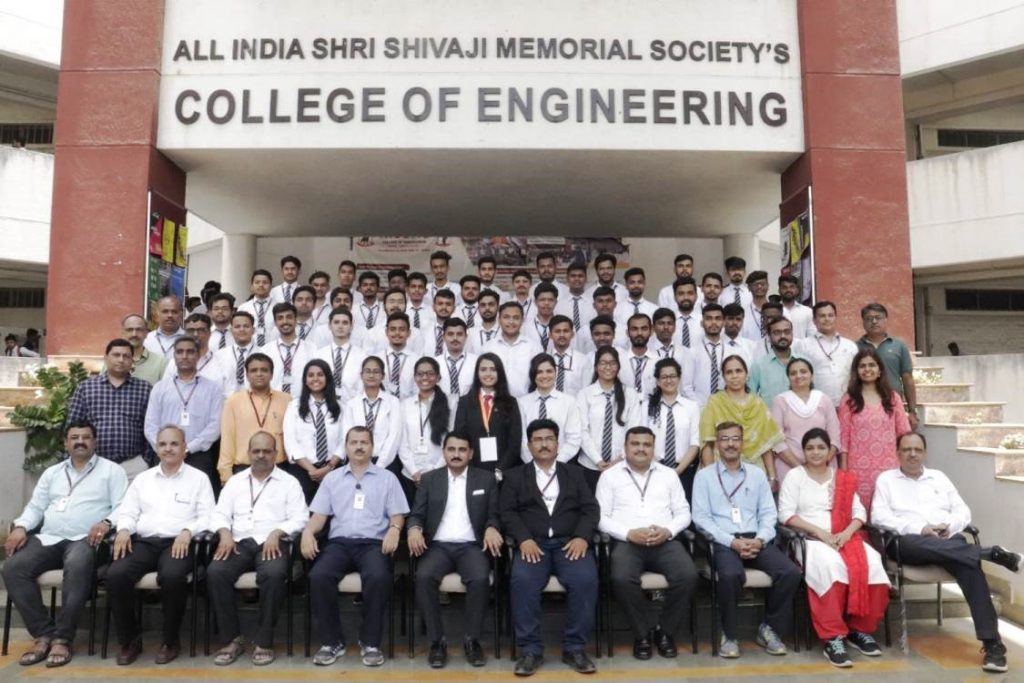
BE Mechanical A Students & Teaching Faculty
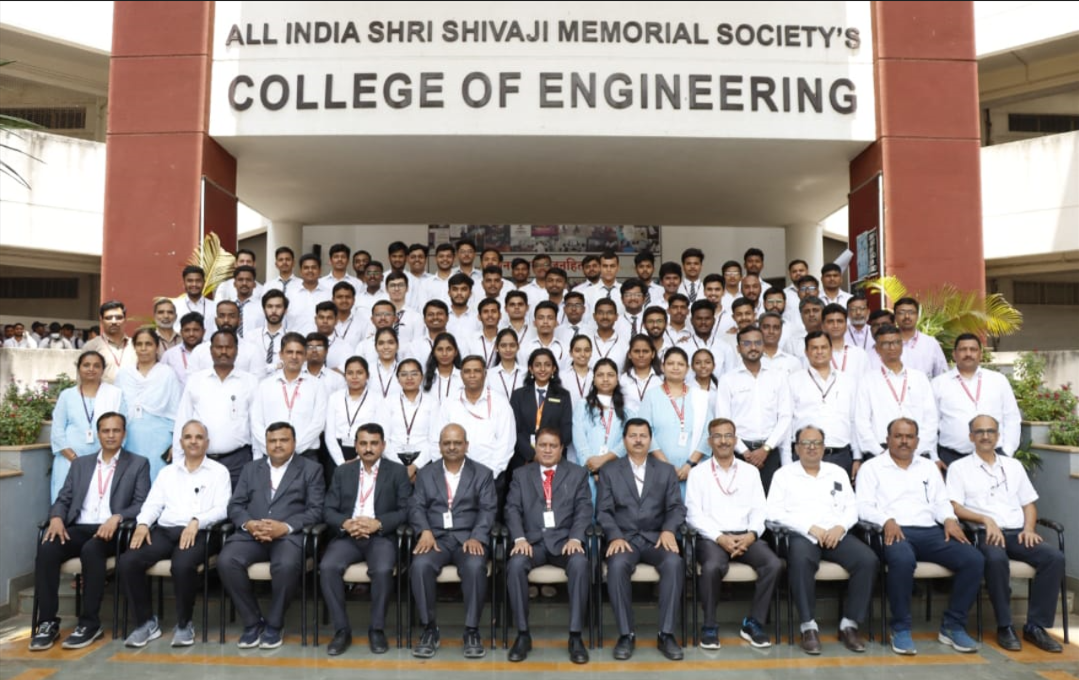
BE Mechanical A Students & Teaching Faculty
